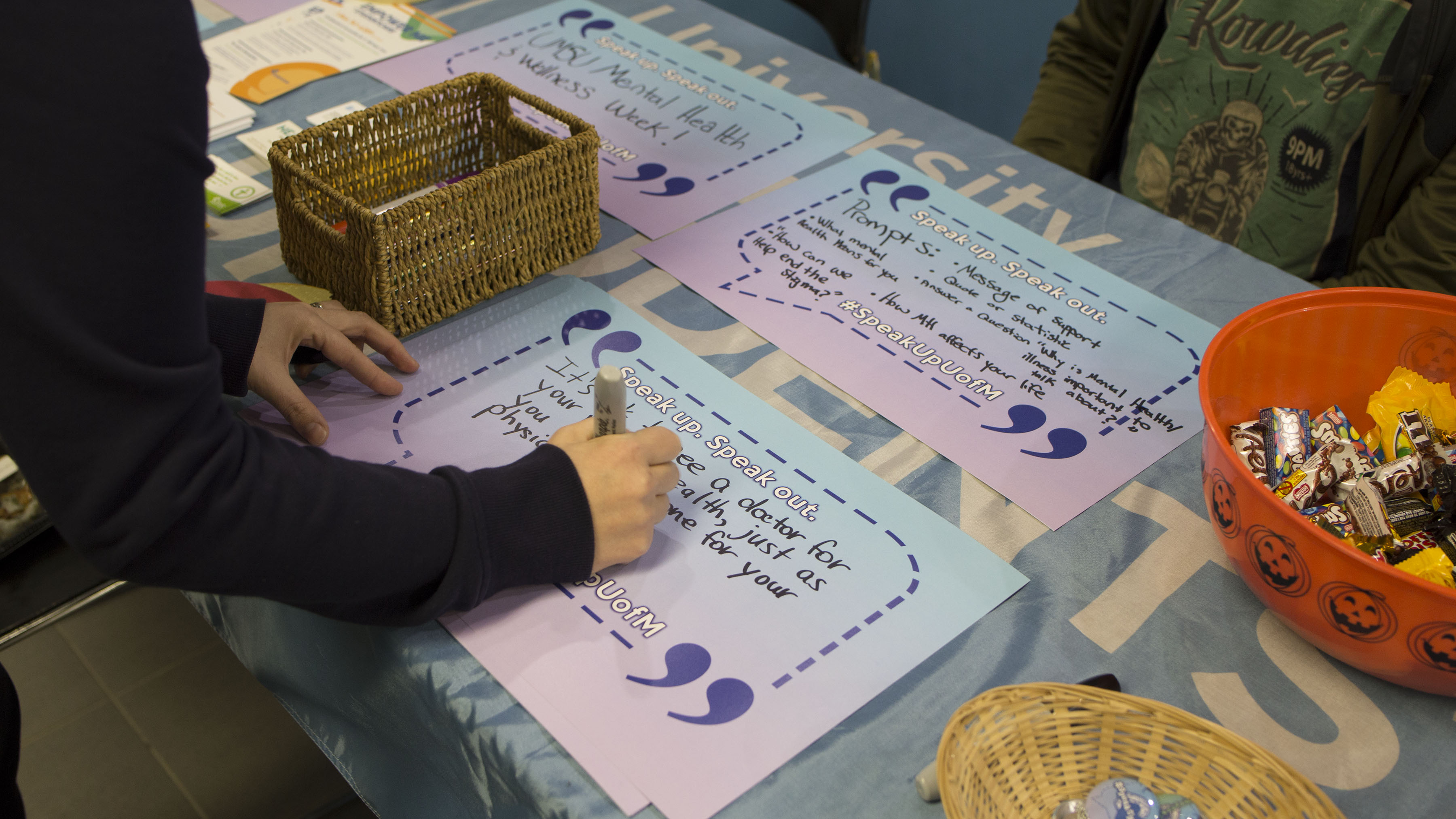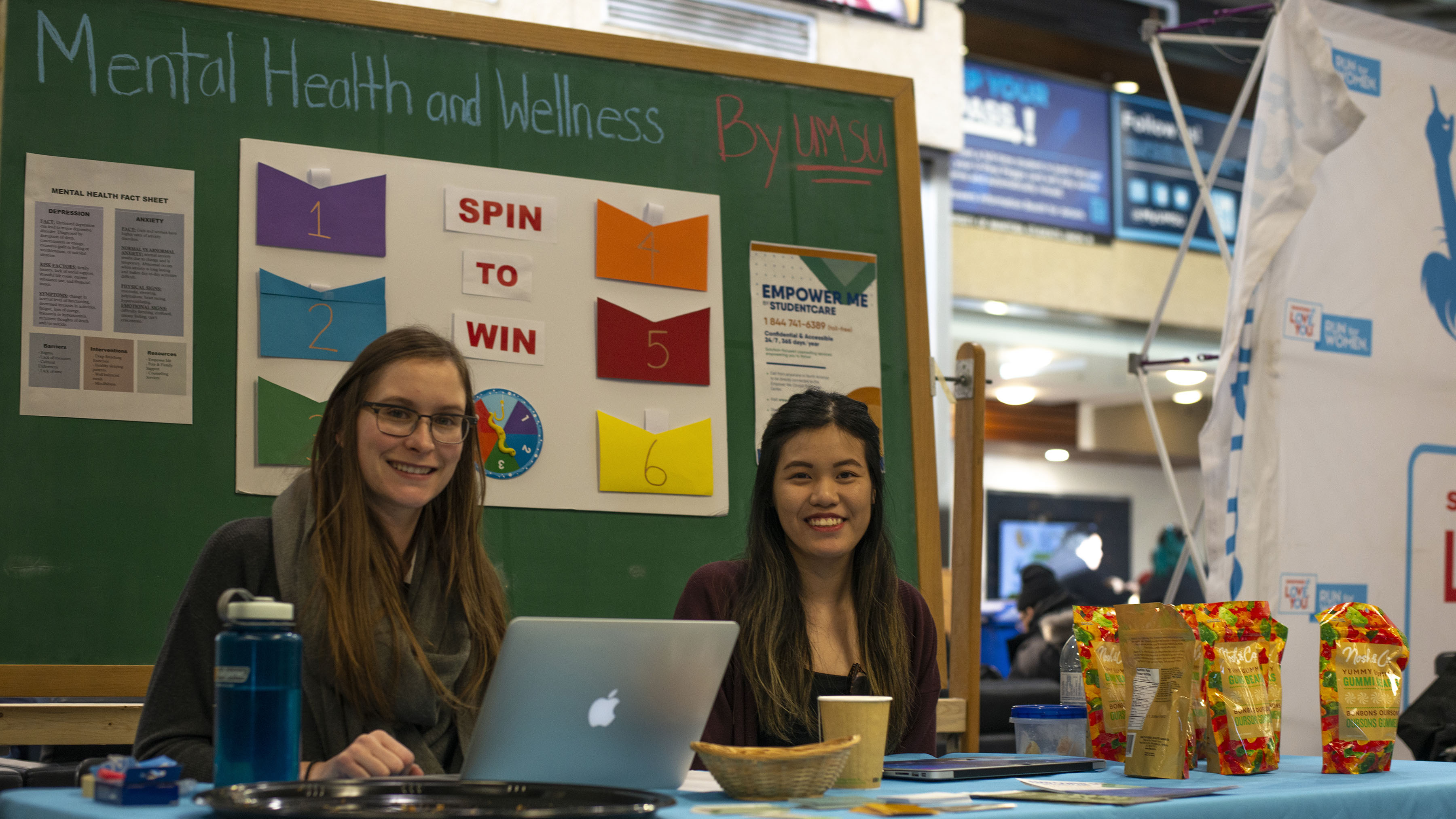UMSU held a workshop looking at the science behind cannabis use and mental health last Wednesday as part of its Mental Health and Wellness week.
The workshop, “Mental Health and Cannabis 101,” sought to educate students on the potential risks and benefits cannabis consumption can have on users.
Mental Health and Wellness week, which ran from Oct. 9 to 12, brought mental wellness programming to students and was hosted by UMSU.
The aim of the campaign was to begin a dialogue concerning mental health and illness.
UMSU hosted a series of other events, including a hand print pledge and art therapy.
The campaign also gave students the opportunity to share their thoughts on mental health, provide messages of support to their fellow students and offer suggestions to UMSU on how to improve the services they provide.
UMSU VP advocacy Sarah Bonner-Proulx said the campaign is a chance for students who may have questions concerning mental health to find resources on campus.
“Each year UMSU organizes two mental health and wellness week campaigns, one in October and one in January, where we invite both internal and external organizations and groups to participate and host events and workshops,” she said.
“For me, I see these campaigns as a platform to educate, raise awareness and reach out to the student body and to normalize the idea of mental illness.”
Bonner-Proulx said UMSU is making education and support for students a priority.
“The goal is to work to normalize mental illness so that students feel more comfortable talking about this still-sensitive topic and seeking support if needed, and [to] debunk myths and misconceptions surrounding mental health and illness,” she said.
Though there has not been any significant evidence proving cannabis causes mental illness, there are some disorders directly associated with cannabis consumption, such as social anxiety, bipolar disorder and schizophrenia.
The workshop went into depth on the science behind getting high, including how cannabis works as a mental stimulant, what bodily functions it affects and its medicinal effects.
While the workshop discussed the possible negative side effects of long-term cannabis use there was also discussion on how cannabis can be used to relieve pain and provide comfort for people suffering from serious illnesses like multiple sclerosis and AIDS.
According to a statement from UMSU, the board of directors hopes to form a “realistic drug strategy” and believes “easily accessible educational resources for students will help eliminate misconceptions about cannabis and subsequently promote safe usage.”





